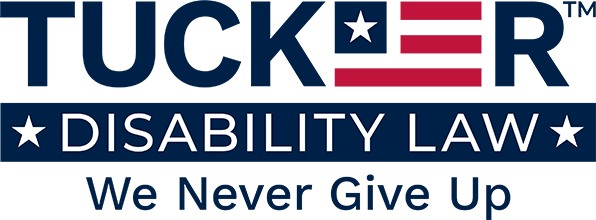For years, the VA flat-out refused to treat obesity as something veterans could get compensated for. But on July 8, 2025, a major court decision changed the game. The Veterans Court ruled in Adams v. Collins that the VA can’t automatically say obesity will never qualify as a disability—especially when it’s caused by your service-connected conditions and makes it harder for you to work.
If your service-connected disabilities led to weight gain that’s affecting your ability to earn a living, you may finally have a path to the benefits you deserve.
At Tucker Disability Law, we’re here to help you understand what this means for your claim. Our founder, John V. Tucker, has been fighting for veterans for over 30 years and serves on the Board of Directors for the National Organization of Veterans Advocates. We Never Give Up on getting you the benefits you’ve earned through your service.
What Changed? Understanding VA Disability for Obesity
Here’s what you need to know: The VA used to say obesity could never be a disability—period. They’d only let it act as a “bridge” between conditions. For example, if your bad knee led to weight gain, and that weight gain caused diabetes, they’d pay you for the diabetes but not the obesity itself.
The Adams decision says that’s not good enough. The court rejected the VA’s blanket “no” on obesity claims. They said a disability is anything that limits your ability to work and earn a living. So if your service-connected condition caused obesity, and that obesity makes it harder to hold down a job, the VA needs to consider it.
This doesn’t mean every obesity claim will automatically win. But it does mean the VA can’t just dismiss these claims without looking at whether your weight impacts your ability to work.
This Problem Affects Thousands of Veterans
Let’s be real—weight gain after service is incredibly common. According to VA research, about 78 percent of veterans are overweight or obese. That’s nearly 8 out of 10 vets struggling with weight issues.
For younger Iraq and Afghanistan veterans, 75 percent were overweight or obese at their first VA healthcare visit. And here’s what makes it even tougher: veterans with PTSD and depression are at the highest risk for obesity—and they often keep gaining weight no matter how hard they try.
This isn’t about willpower. Military service changes your body and mind in ways that can make weight gain almost inevitable. Combat trauma, injuries that limit your mobility, medications with weight-gain side effects, exposure to burn pits and other toxins—all of these can pack on pounds that won’t come off.
How to Qualify for VA Disability for Obesity
To win a VA disability claim for obesity, you need to show three things:
1. Your Obesity Is Connected to Your Service
You’ve got to prove your service-connected condition caused or made your weight problem worse. Here are the most common ways this happens:
Injuries That Keep You from Exercising
Got a service-connected knee, back, or hip problem? If your injury makes it painful or impossible to stay active, that’s your connection. When you can’t exercise because of a service-connected disability, weight gain follows—and that’s on the VA.
Medications That Cause Weight Gain
Many medications prescribed for service-connected conditions cause serious weight gain. Antidepressants for PTSD, medications for anxiety and depression, insulin for diabetes, epilepsy drugs, blood pressure meds, steroids—they all can make you gain weight. If the VA or a military doctor prescribed medication for your service-connected condition, and that medication caused weight gain, you’ve got a valid claim.
PTSD and Mental Health Conditions
Service-connected PTSD and depression don’t just affect your mind—they mess with your metabolism. Research shows PTSD causes hormonal changes that promote fat storage, especially dangerous belly fat. Combat trauma can also lead to stress eating, emotional eating, or losing all motivation to stay fit. The connection between PTSD and weight gain is backed by solid medical science.
Toxic Exposures During Service
Burn pits, contaminated water (like at Camp Lejeune), Agent Orange, pesticides—these exposures can disrupt your metabolism and contribute to weight gain.
2. Your Obesity Makes It Hard to Work
This is the key piece from the Adams decision. You need to show how obesity limits your ability to earn a living. This could mean:
- Trouble standing, walking, or climbing stairs that most jobs require
- Can’t lift things or do physical tasks needed for work
- So tired from sleep apnea that you can’t stay alert on the job
- Back pain or joint pain from the extra weight makes sitting or standing for a full shift impossible
- Health problems from obesity (diabetes, heart disease) that cause you to miss work
You don’t have to be completely unable to work. You just need to show the obesity significantly reduces what you can earn.
Even your own statement about these problems counts as evidence. Add in a statement from your spouse or family members about what they’ve seen, and you’ve got a stronger case.
3. Medical Evidence Backs It Up
You need documentation that shows:
- Your Body Mass Index (BMI) is 30 or higher (that’s the medical definition of obesity)
- Medical records connecting your weight gain to your service-connected conditions
- A nexus letter from a doctor explaining how your service-connected disability caused your obesity
- Records showing you’ve tried to lose weight but can’t because of your service-connected limitations
Using Obesity as a “Bridge” to Other Benefits
Even before the Adams decision, the VA recognized obesity as an “intermediate step” for getting other conditions service-connected. This approach is still valid and important.
Here’s how it works: If your service-connected condition caused obesity, and that obesity then caused another health problem, you can get paid for that health problem as secondary to your original service-connected condition.
Common Health Problems Connected Through Obesity
Sleep Apnea
This is one of the most common claims. Extra weight causes your throat to collapse while you sleep, cutting off your breathing over and over. This leads to dangerous drops in oxygen, puts strain on your heart, and leaves you exhausted during the day. The VA rates sleep apnea from 0 to 100 percent. If you need a CPAP machine, you can get a 50 percent rating.
Type 2 Diabetes
Obesity causes insulin resistance and dramatically increases diabetes risk. If your bad back kept you from exercising, leading to weight gain and then diabetes, that diabetes is service-connected through the obesity link. Diabetes ratings range from 10 to 100 percent.
Heart Problems
Weight gain contributes to high blood pressure, heart disease, heart failure, and stroke. When obesity is the bridge between your service-connected disability and heart problems, those heart issues can be service-connected too.
Joint Problems Getting Worse
Extra weight puts tremendous pressure on your knees, hips, ankles, and spine. This can cause new joint problems or make existing ones much worse.
Depression and Anxiety
The relationship goes both ways. If your service-connected physical injuries caused obesity, and that obesity led to depression, you may be able to get that mental health condition service-connected.
Other Related Conditions
Acid reflux (GERD), fatty liver disease, worsening mobility—all of these can be connected through obesity to your original service-connected condition.
The key is proving the chain: Your service-connected condition caused obesity, and obesity substantially contributed to your new health problem. A good medical opinion connecting these dots can make or break your claim.
Why This Matters for Your Family Too
This ruling isn’t just about monthly checks (though those can be substantial). Here’s what else is at stake:
Back Pay
If you’ve been fighting an obesity claim for years, you could be entitled to retroactive payments back to when you first filed. For some veterans, this could mean tens of thousands of dollars.
Higher Disability Ratings
Adding obesity or obesity-related conditions to your service-connected disabilities can push your combined rating higher. The difference between 70 and 100 percent is life-changing in terms of monthly compensation and benefits. CLICK HERE to read our article on 2026 VA Disability Rates to see what you could qualify for.
Better Healthcare Access
Service-connected conditions get priority for VA healthcare without copays. Getting obesity and related conditions service-connected means you get treatment covered.
Benefits for Your Surviving Family
If obesity or obesity-related conditions contribute to a veteran’s death, surviving spouses and children may qualify for Dependency and Indemnity Compensation (DIC)—tax-free monthly payments that provide crucial financial support.
Total Disability Based on Unemployability (TDIU)
Even if your combined rating isn’t 100 percent, you may qualify for TDIU if your service-connected conditions make it impossible to hold down substantially gainful employment. TDIU pays at the 100 percent rate.
What You Should Do Right Now
If your service-connected conditions led to obesity that affects your ability to work, don’t wait. Here’s what to do based on your situation:
Never Filed Before?
Start a new claim. Gather your service medical records, VA treatment records, and any private medical evidence. Write down in detail how your service-connected conditions caused your weight gain, and exactly how that weight affects your ability to work.
Filed But Still Waiting for a Decision?
Push the VA to act. If your claim has been sitting there forever, submit additional evidence or request a status update. Don’t let it collect dust—the VA owes you a timely decision.
Got Denied in the Past?
You can reopen your case. If the VA denied you because they said obesity can’t be a disability, the Adams decision gives you new grounds to fight. File a supplemental claim with new evidence, or if the denial was recent, appeal within the deadline.
You can also file for secondary conditions using obesity as the intermediate step, even if direct compensation for obesity was denied. Many veterans successfully win benefits for diabetes, sleep apnea, and heart disease this way.
Don’t Go It Alone
The VA has been fighting obesity claims for years. Even with the Adams decision, they’re not going to make this easy. These claims require strong medical evidence, detailed documentation, and solid legal arguments.
Winning an obesity claim could mean substantial back pay and monthly benefits that make a real difference in your life. More importantly, it gets you the medical care and financial security you earned through your service.
How Tucker Disability Law Helps with VA Disability for Obesity Claims
At Tucker Disability Law, we represent veterans nationwide in VA disability claims, including complex obesity cases. We know the medical science connecting service-connected conditions to weight gain. We know the legal arguments that work. And we have the tenacity to keep fighting until you get what you deserve.
John V. Tucker has spent over 30 years fighting for veterans’ rights. His position on the Board of Directors for the National Organization of Veterans Advocates keeps him on the cutting edge of veterans law, including new developments like the Adams decision.
We Never Give Up. That’s not just words on our website—it’s our promise to every veteran we represent. The VA denied your claim? We’ll fight to reopen it. The VA says obesity isn’t compensable? We’ll cite the court decisions that prove otherwise. The VA wants more evidence? We’ll help you gather every piece of proof you need to win.
Take Action on Your VA Disability for Obesity Claim
Don’t wait to find out if this ruling can help you. The sooner you start, the sooner you can get the benefits you’ve earned.
Use the blue contact section NOW to call us, live chat with us, or message us using our confidential contact form. Let’s review your case, talk about your service-connected conditions, and figure out whether an obesity claim could increase your benefits.
Your service earned it. Now it’s time to claim it. Let Tucker Disability Law stand beside you in this fight—because We Never Give Up on America’s Veterans.







